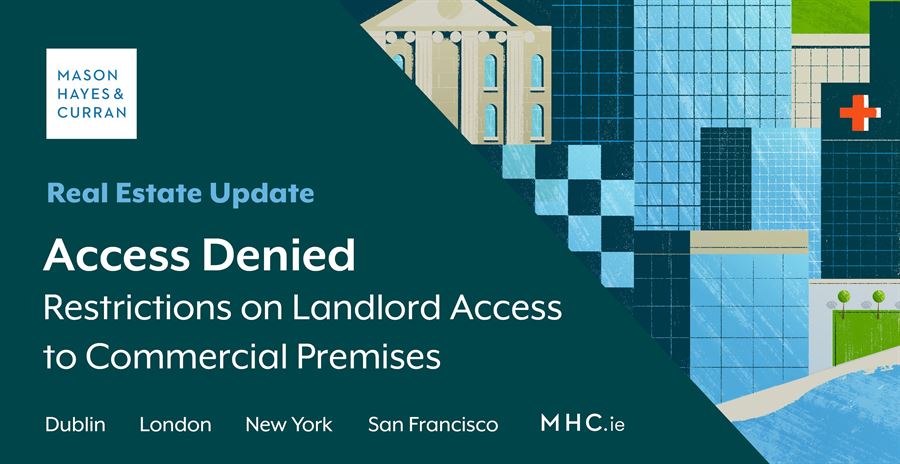
Commercial leases typically reserve rights in favour of the landlord to ensure that its investment is protected by allowing the landlord and its agents access to inspect the premises, carry out repairs and for viewings by potential purchasers.
These broad landlord rights may not be acceptable to a tenant or be compatible with its security or confidentiality requirements. While landlord rights of access would not in the past have been considered a key commercial term, access protocols are becoming more heavily negotiated.
Restricting or retaining access rights
Broad landlord access rights can be of particular concern to tenants leasing laboratory space where they have concerns in relation to infection control or exposure to hazardous materials and to companies leasing office space where confidential or sensitive content will be worked on and potentially visible or on display.
When negotiating a commercial lease, careful consideration should be given to documenting landlord access rights and any restrictions or limitations on these rights. While a tenant may be inclined to seek to restrict landlord access insofar as is possible, a landlord will generally insist on retaining certain access rights to ensure that tenant covenants are being complied with, the landlord may comply with its covenants, and so that the value of its investment is protected.
Access protocol provisions
Dependent on the outcome of negotiations, the landlord and tenant should consider including an access protocol in the lease detailing the agreement reached. We have outlined below provisions that could be included in an access protocol to achieve a balance between landlord access rights and tenant security and confidentiality requirements.
-
Notice – the minimum notice period that a landlord is required to provide in advance of access should be documented. Tenants will typically require that this notice is provided in writing.
-
Restricted areas – in the case of particularly sensitive areas within the premises a longer notice period may be appropriate and/or access could be limited to specific circumstances, such as only in the case of emergency.
-
Emergencies - landlords will generally require the right to access the entire of the premises without delay in the case of emergency. A clear definition of what constitutes an emergency for this purpose will protect both the landlord and the tenant.
-
Non-disclosure agreement (NDA) – a tenant may require that the landlord and its agents accessing the premises sign an NDA, committing not to disclose any sensitive information obtained by the landlord/its agent during its access to the premises.
-
Tenant representative accompanying – tenants may want to include a requirement that landlord access, save in the case of emergency, should only be where the landlord and its agents are accompanied by a tenant representative. This will allow the tenant the ability to oversee access and ensure that sensitive information is not inadvertently made accessible to the landlord and/or its agents.
-
Specific requirements – a tenant may have specific requirements regarding access, particularly in laboratory facilities and clean-rooms. For example, PPE may be required. More generally, and where possible, a tenant may require that access be outside core working hours.
The above suggestions are not exhaustive and the limitations/restrictions that may be necessary to ensure that a tenant’s security requirements are complied with will vary in each case and be specific to each tenant/lease.
Conclusion
Landlord access rights are governed by the lease, and commercial leases typically reserve broad access rights in favour of the landlord so that it can inspect the premises and protect its investment.
If wide-ranging landlord access rights are of concern for a tenant, it is important that these rights are considered and restrictions on access are negotiated at the outset of the leasing transaction and documented in the lease.
For more information on the above and any other enquiries about commercial leases, contact a member of our Real Estate team.





